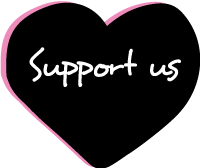In 2017 @ease was created by Prof. Dr.
Thérèse van Amelsvoort (professor of Transitional Psychiatry at Maastricht UMC+)
and Dr. Rianne Klaassen (educator and child- and youth psychiatrist at Levvel in Amsterdam).
In the Netherlands, @ease was able to start with funding from the ‘Innovatiefonds Zorgverzekeraars’.
With further assistance by Maastricht UMC+, the University of Maastricht,
VUmc and a number of other institutes and ambulatory mental health facilities,
@ease was able to grow in a professional way. We work together with a growing group of involved organizations ,
some of which are healthcare and governmental institutions.
In 2017 @ease was founded, the Dutch version of the successful Australian organization
Headspace. Headspace was founded in 2006 by Prof. Pat McGorry, in collaboration with the Australian government. Via around 100 Headspace walk-in locations, youth can receive psychiatric help and support in a relaxed manner. This concept has been taken over in many other countries, including the Netherlands. In the Netherlands, youth chose the name @ease.
It is well known that 75% of all psychological problems begin under the age of 25.
Even though there are good forms of assistance, only 30% of youngsters with psychological
problems receive help at the right time. The threshold for reaching out for help is often too high.
Many youngsters feel ashamed, don’t know where to ask for help, are put on a waitinglist for a long time.
Furthermore, it’s also difficult to get help when your symptoms come and go and can’t be diagnosed (yet).
@ease wants to bring change for people in these situations. @ease wants to prevent young people
from having to navigate through their problems on their own. We believe that talking about
feelings helps. Youngsters feel heard and less alone. Even just one conversation can be enough.
It provides a sense of relief and strength. It can often stop situations from getting worse.
By being able to notice problems earlier and work towards a solution,
@ease is hoping to prevent people from (later) needing long-term care.
Our mission is to give young people a safe space where they can feel heard and are able to go to
when they’re struggling with something. Our work process is structured in a way that we can…
- Make it easier for youngsters to find help with (beginning) psychological and social problems;
- Prevent existing (psychological) problems from getting worse;
- Stimulate the strength and independence of youth and to provide them with customization
of their care: we normalize wherever we can and intervene only when necessary.
@ease was created specifically for young people aged 12-25 years, who require a listening ear.
They can talk to people their age about their questions and problems: always free of charge,
anonymous, without a waiting list, and as easy as possible. The young volunteers at @ease work
together with trained professionals from local healthcare organizations.
Preventing psychological and social problems in adolescents is the main focus.
Our volunteers are trained to notice signals that may point to potentially worse psychological problems.
At our @ease locations a mental health professional is always available.
If necessary, they can also help find the right care in the regular (mental) health sector.
There is also always an @ease psychiatrist available in case of emergency situations.
Everything is done with the consent of the youngster!
Youngsters can currently visit different locations. Besides the conversations at the physical location, @ease also has a chat service, so that youngsters can find a listening ‘ear’ online too.
We’re primarily there for young people between the ages 12-25 years that need a listening ear for themselves, or who are looking for advice for someone else. Individuals who are already on a waiting list for psychological help, receiving help at a different institutions, or who have already finished therapy are all welcome to come by. Conversations at @ease can be done in both Dutch and English. Every conversation is anonymous.
Family members, teachers, health professionals and other close relations are always welcome to accompany a youngster if necessary. If the first step towards getting help is difficult, we’re happy to think of ways to make it easier!





